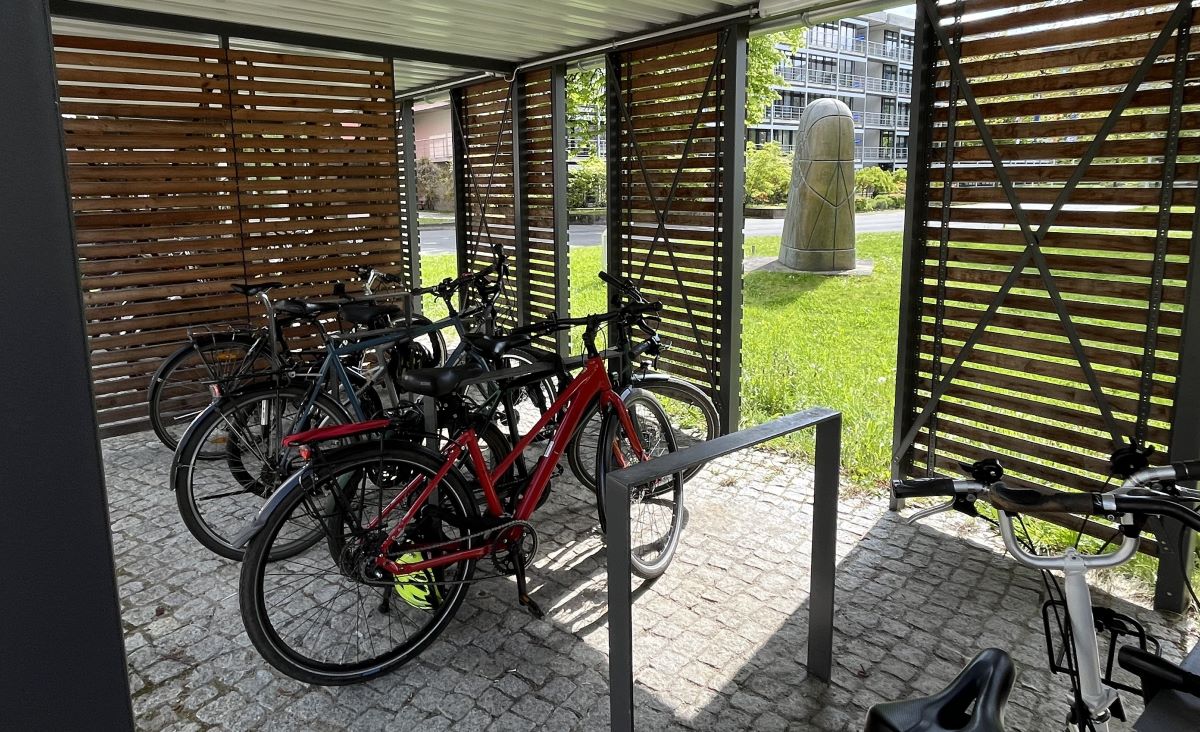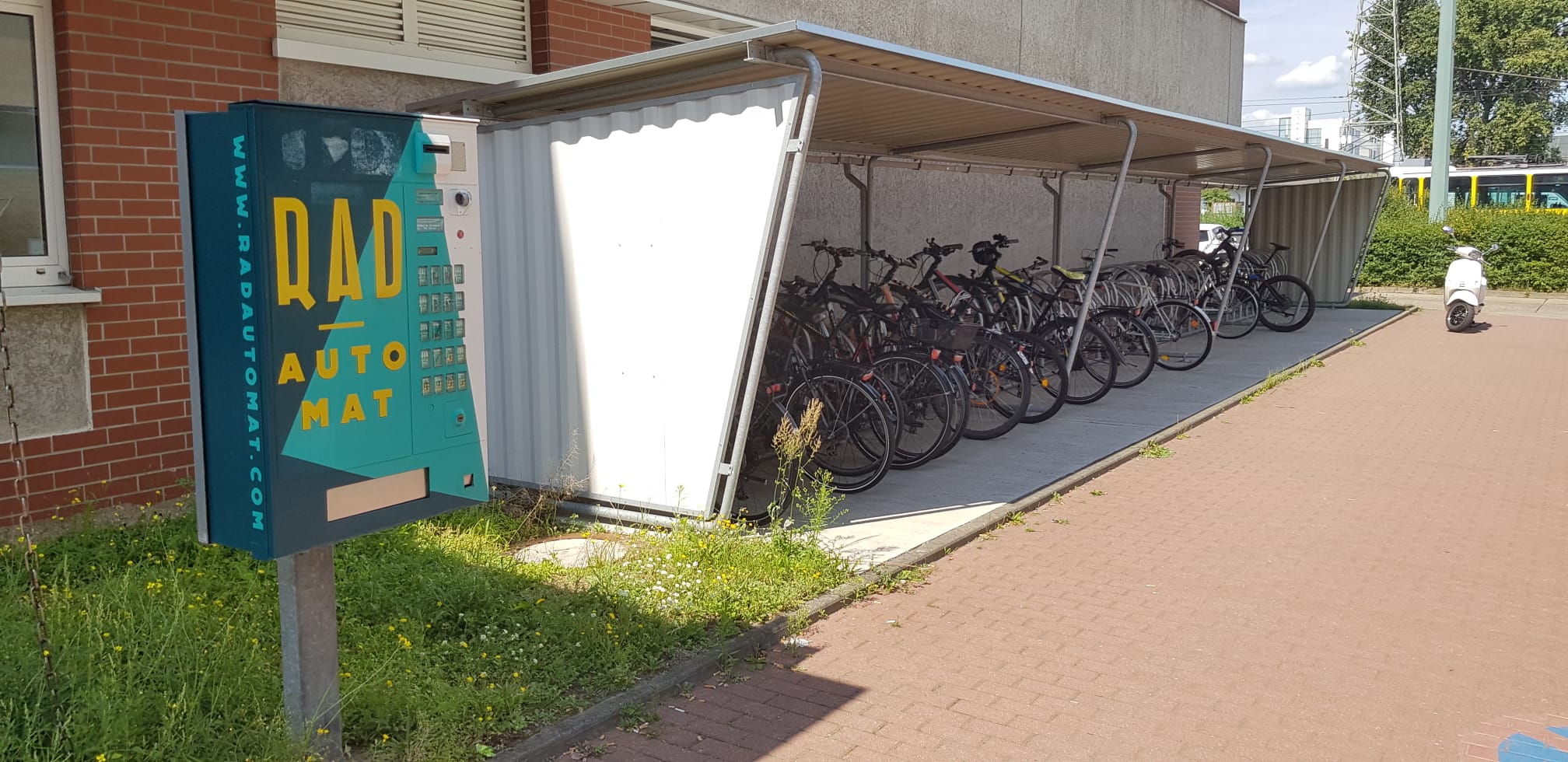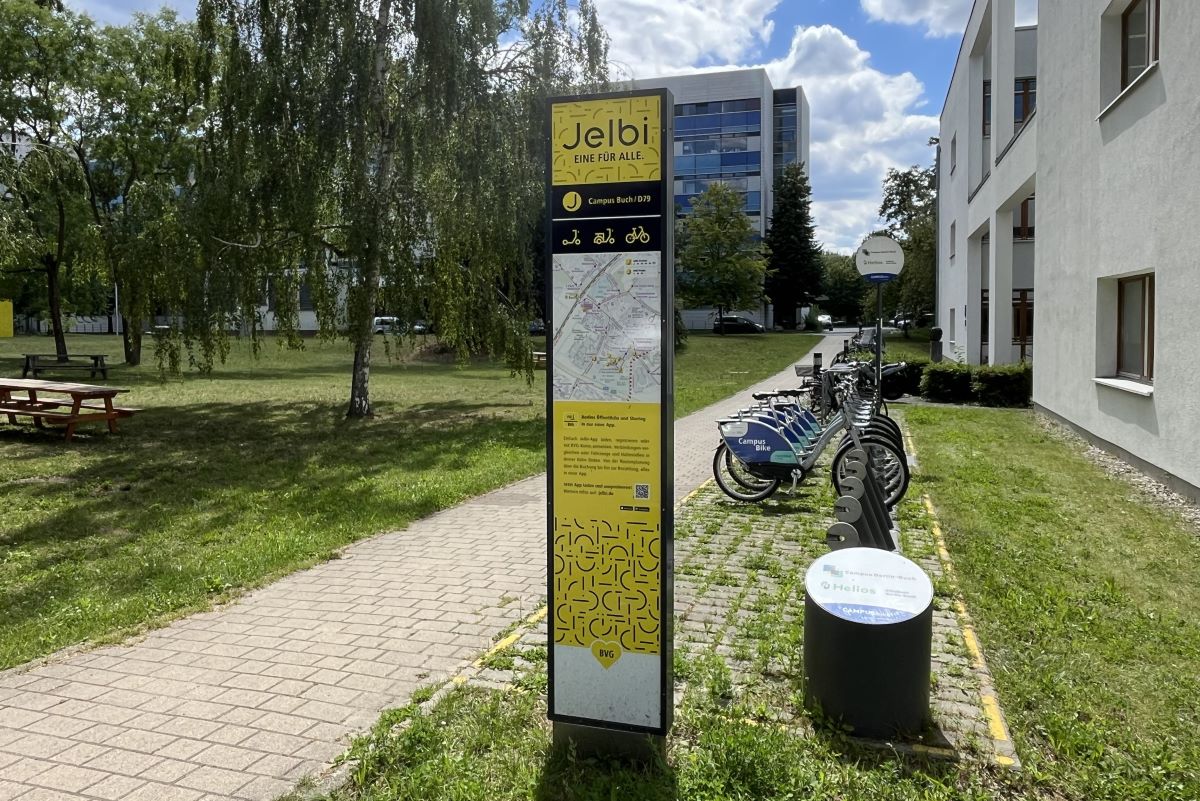Benefits for enterprises and local authorities

If more people cycle to work, it protects the environment. This is also the main reason for enterprises to encourage cycle mobility among their employees. Measures to encourage cycling also make them more attractive for existing and new personnel.
Companies additionally benefit from a workforce that is fitter and more productive. On average, employees who commute by bike have one third fewer days of sick leave than those who drive or use public transport. This results in cost savings due to increases in attendance and effectiveness within the company.
Measures to promote cycling
There is a very wide range of measures that companies and local authorities can offer and implement to promote cycle mobility.
One very well received measure is bicycle leasing. In 2012, the supreme tax authorities of the German federal states extended the tax benefits for company cars to cover bicycles, pedelecs and e-bikes. Today, more than one million bicycles are on leasing arrangements. In the year 2022 alone, half a million leased bicycles were added to this figure, which is a good quarter up on the figures from 2021.
Infrastructure is another important factor for employees. A sufficient quantity of secure and convenient parking facilities should be provided for them. If people have the feeling that their bicycle is liable to be stolen at the workplace or actually have experience of this, they will be less likely to use their bikes, if at all. Here it is important to ensure that the parking facilities have barrier-free access, are protected from the weather and are well lit. Additional measures such as showers, changing rooms and lockers for cyclists’ clothing can also make the facilities more cycle-friendly.

The provision of services such as repair kits and columns or even basic tools and a pump also facilitate cycle mobility. And it is important that these services should not be located too far from the parking areas. A room with facilities for repairing bicycles or a service contract with a cycle dealer around the corner, where bicycles can be taken during the lunch break for a change of inner tube, can also make bicycle commuting easier. Various additional offers such as bike checks, bicycle coding or even test days for bikes can lead to more frequent and safer use of bicycles.
It is of prime importance to have one person or a team to coordinate and organize all matters relating to bicycles or mobility. If that person or team is to perform the task well, it is important to have an overall target for increasing the proportion of cycle commuting or even to draw up a comprehensive, company-specific mobility strategy to serve as both a reference and working document. Further coordinating activities lie in the selection of bicycle couriers and in the use of cargo bikes where delivery services are involved.
Exchanging ideas with local companies or similar companies within the municipality as well as communication with the municipality in general is also advisable. After all, another crucial factor in achieving a high rate of cycle commuting is the bike infrastructure en route to the company or local authority. As the municipality is responsible for the construction of bike infrastructure, the company can only bring about improvements by actually communicating with the municipality. And since municipalities also profit from commerce within their own town or community, they are often receptive to an exchange of this kind.
There should also be regular information and communication on company-related bike activities and general cycling news – via e-mail or the intranet for example. Participation in competitions such “Mit dem Rad zur Arbeit” (mdrza – a competition to encourage cycle commuting in Germany) or “City Cycling” are ways of promoting cycling more intensively during certain periods, while helping to strengthen the team spirit internally and encouraging more people to switch to their bikes. Other measures such as company bike excursions, individual route planning discussions, rewards for employees who cycle to work, or events (e.g. bike action days) and offers of further cycle training (e.g. pedelec courses) also encourage cycle commuting within the company. If visitors and customers regularly cycle to the company, secure and accessible bicycle parking facilities should be provided for them too.

The company website should additionally offer information on the best access routes for cyclists and on the local cycle parking situation. Parking space management is another important point. Providing parking space for cars is expensive (60 – 300 euros per month). Reducing parking spaces is not only able to bring about cost savings, but also opens up alternative uses for the area – e.g. for bicycle parking facilities (more efficient use of space since one parking bay can accommodate ten bikes), for green and seating areas, e.g. for employees’ recreational use.
Other complementary measures such as the reduction of company cars and the offer of subsidized job tickets for public transport in Germany or bicycle leasing (as described above) also generate a more bicycle-friendly climate.
Certification scheme for cycle-friendly employers
Since 2017, companies and local authorities that wish to display their cycle-friendly credentials have been able to apply for certification as a “Cycle-friendly employer”. The certification is carried out by the German Cyclists’ Federation (ADFC) in Germany and is valid throughout the EU. Interested employers can find out whether certification is possible by carrying out the self-evaluation steps on the website https://cfe-certification.eu/about/eu-framework .
In the following step, companies can sign up for the audit. ADFC auditors located throughout Germany then advise on the possibilities for optimization and carry out an on-site inspection of the facilities. A positive result leads to the company receiving the quality mark “Certified bike-friendly employer” in bronze, silver or gold. The certification is valid for three years. In Germany, there are approximately 350 certified employers with a total of 325,000 employees. Of these employers, 120 actually have gold certification and they include Robert Bosch, WFB Wirtschaftsförderung Bremen, Deutscher Wetterdienst, Roche, Sony Europe in Stuttgart, the DZ Bank AG and various local authorities, such as Erlangen, and municipal utilities, such as Stadtwerke Essen.

